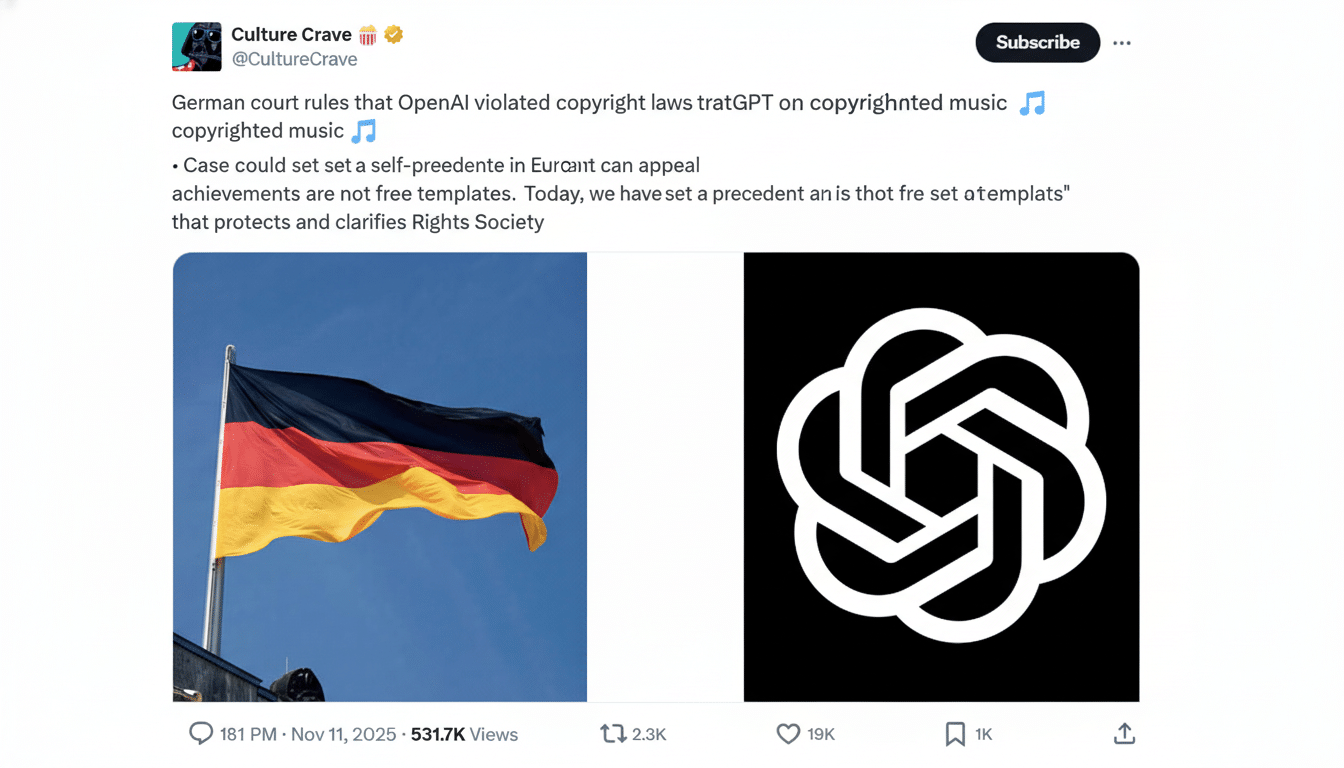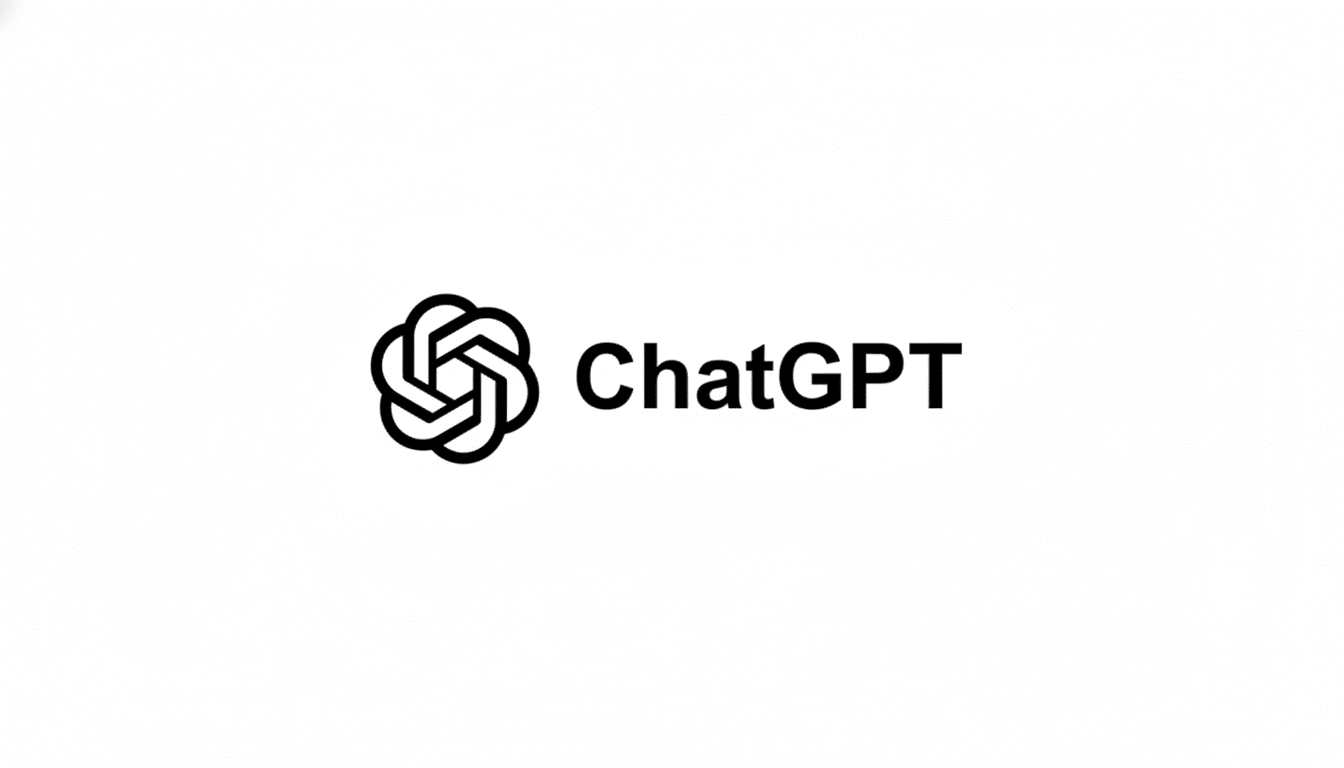OpenAI’s ChatGPT, the defendant’s model, used copyrighted works without the right to use licensed musical works when training, according to a German court in a case brought by Germany’s music rights society GEMA. The amount of the award was not disclosed. OpenAI said it “disagrees with this decision” and is considering its options; GEMA called the ruling a milestone for authors’ rights in the AI age, multiple outlets including The Guardian reported.
What the German Court Decided About AI Training Use
That is an activity that is not authorized by the rightsholder of even one protected musical work and serves as a building block to create a competitive, commercial product that innovates on infringing materials and then seeks permission after the fact. Practically, by training, GEMA considered this to mean an exact imitation that is not authorized. The ruling also suggests that rights holders are free to pursue money damages when their catalogs are used to train models that form the basis of a revenue-generating service.

The full text of the ruling does not appear to have been released, but reports suggest that the court agreed with the collecting society’s fundamental claim: scraping and processing protected works for AI training is not per se protected based on general text-and-data-mining allowances when rights have been reserved. The damages award, however modest and unlikely to be fully paid, provides a legal template that other plaintiffs may copy.
Why German Law Is Relevant to AI Training
Germany’s Copyright Act transposes the EU copyright framework containing text and data mining rules implemented through the Digital Single Market Directive. Those rules do allow certain computational analyses, but for commercial purposes they let rightsholders retain rights — often through machine-readable opt-outs — requiring developers to get a license. If there are preempted works, training on them without permission can create exposure.
German courts frequently determine damages in copyright cases based on a “license analogy,” gauging what would have been reasonable payment for lawful use. They can also enter an injunction to stop the infringement and order disclosure directed toward managing scope of use. For AI developers, that combination can be burdensome: It requires companies to document the sources of their data, respect opt-out requests, and negotiate portfolio-wide licensing deals with collecting societies.
Industry Context and Precedent for Music AI Cases
GEMA is one of Europe’s most powerful collecting societies, controlling the rights to a massive catalog in one of the world’s four largest music markets. Other organizations, like SACEM in France and SIAE in Italy, may use its victory as reason to further scrutinize AI training practices using lyrics and compositions. Parallel claims have already been made by music rightsholders elsewhere—industry groups linked to IFPI have complained about unlicensed training and lyric regeneration by chatbots.
OpenAI is facing separate lawsuits from authors and media companies for training on books and news.

At the same time, AI companies have started signing data deals with major publishers and platforms, an effective admission that licensing is where things are headed. Stand-alone deals with companies including Axel Springer, News Corp, the Associated Press, Reddit, and Shutterstock indicate a move toward negotiated access—but those broad-based deals for musical works have been less publicized.
Implications for OpenAI and Other AI Developers
At a tactical level this is fiscal punishment, but at a strategic level you are in sufferance. To de-risk in Europe, OpenAI et al. would beg for robust provenance metadata, automated filtering of any nudes or reserved works, and licensing frameworks with collecting societies. The move also aligns with growing commitments under the EU’s AI rulemaking to mandate greater transparency surrounding training data and model behavior.
An appeal is likely. Under German copyright law, legal proceedings involve the regional court, higher regional court, and can be decided by the Federal Court of Justice. And although this decision may be narrowed on appeal, it has already sent a signal to the market: courts are open to arguments that model training is a rights-relevant use even in cases where rightsholders have chosen to opt out or no license exists.
What to Watch Next as European AI Litigation Evolves
Key issues include whether the court will order disclosure about training data sets, how damages should be calculated according to a license-analogy approach in a world of AI, and if injunctive relief will require technical tools to prevent song lyrics’ reproduction. Keep an eye out for follow-up action from other European collecting societies and for new, standardized opt-out registries that AI firms must respect.
The message for the AI industry could not be clearer: Europe wants consent, compensation, and transparency. Those that operationalize those principles—through rights-respecting datasets and transparent audit trails—will move faster and take fewer legal shocks than those that don’t.

